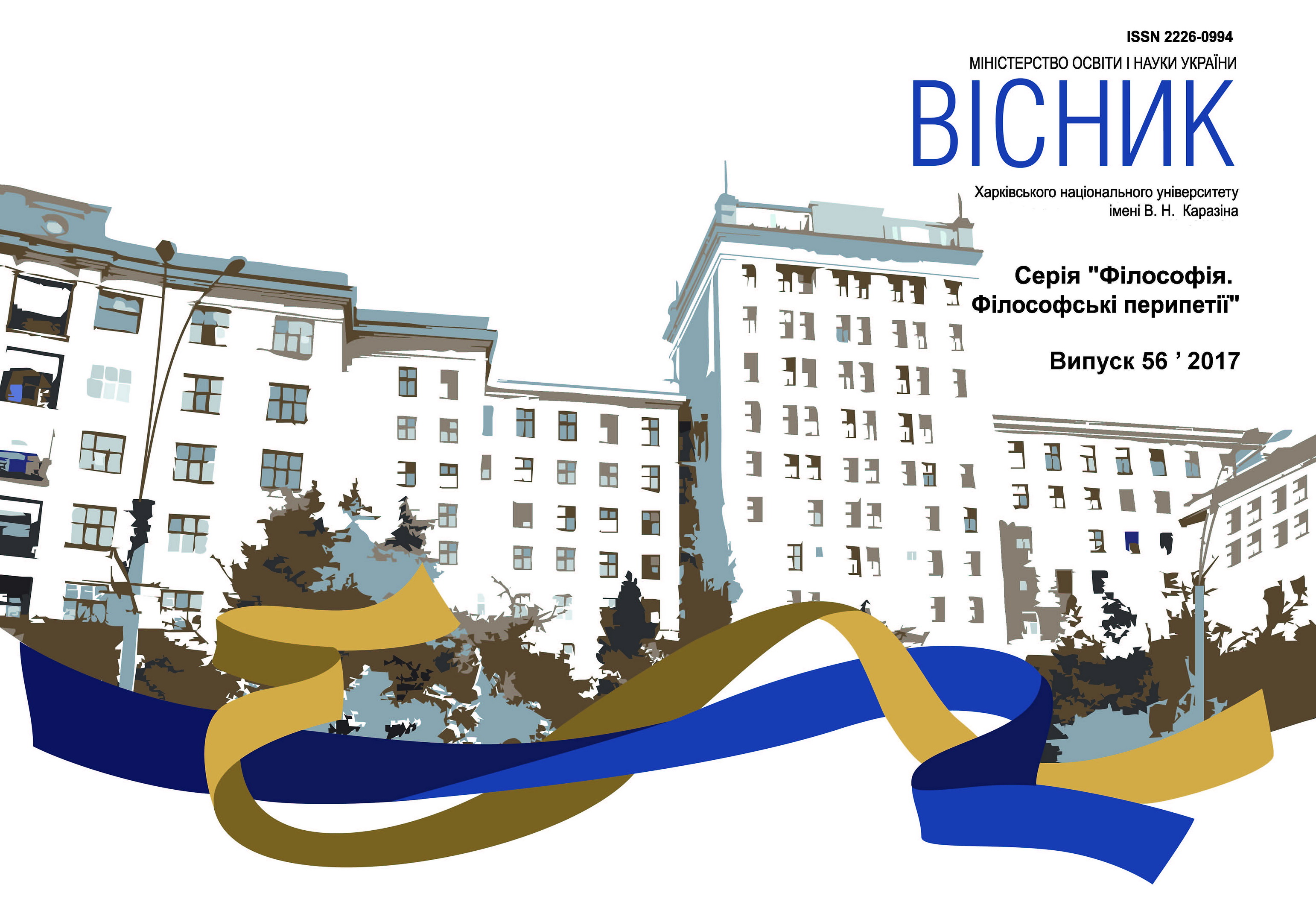МЕТАФОРИЧНЕ МИСЛЕННЯ ТА ПРОБЛЕМА (НЕ)ПЕРЕКЛАДНОСТІ
Анотація
Звернення до феномену іманентності деяких знань про властивості світу – феномену, що зумовлює первинну «метафорику» людського мислення та втілюється у мові – випливає з необхідності пошуку позитивної основи для теорії та практики перекладу, чого не може надати загальний концептуальний спектр постсучасної філософії. Аналіз текстів Жака Дерріда та Вальтера Беньяміна демонструє, що загального позитивного метамовного фундаменту для цих мислителів не існує: у Дерріда спільність означуваного постає у формі «конститувної втрати», а Беньямін мислить у якості універсальної основи реальних мов якусь містичну «позасмислову» фікцію. Але без позитивності загальної основи немає і можливостей для справжнього перекладу. З точки зору Беньяміна та Дерріда, мова являє собою не вмістилище смислів, але поле їхнього безупинного творіння, проте через відсутність єдиного позитивного підґрунття така позиція інспірує потенційно нескінченне та максимально вільне «реконституювання» авторської інтенції. Протиставити ж невиправдано широкому спекулюванню на проблемі неперекладності можна об’єктивні дані сучасних наук, які вивчають мову та мислення. Саме постійне озирання на наявні у нашому розпорядженні відомості про характер роботи «ментального апарату» людини та особливості функціонування знакових систем дозволяє ефективно коригувати спекулятивну нестриманість деяких філософських розробок проблематики перекладу.
Завантаження
Посилання
Беньямин В. Задача переводчика : [электронный ресурс] / В. Беньямин ; [пер. с нем. Е. Павлова]. – Режим доступа : http://kassandrion.narod.ru/commentary/11/6ben.htm#0.
Гадамер Х.-Г. Истина и метод: основы философской герменевтики / Ханс-Георг Гадамер ; [пер. с нем.; общ. ред. и вступ. ст. Б. Н. Бессонова]. – М. : Прогресс, 1988. – 704 с.
Деррида Ж. Вокруг вавилонских башен : [электронный ресурс] / Жак Деррида ; [пер. с французского В. Е. Лапицкого]. – СПб. : Machina, 2012. – Режим доступа : http://www.gumer.info/bogoslov_Buks/Philos/Derr/vokr_vav.php
Перевод хранит память о несостоявшихся возможностях языка: Александр Марков о философии перевода : [интервью] : [электронный ресурс] / Александр Викторович Марков. – Режим доступа : https://theoryandpractice.ru/posts/10153-perevod.
Пинкер С. Как работает мозг / Стивен Пинкер ; [пер. с англ. О. Ю. Семиной]. – М. : Кучково поле, 2017. – 672 с.
Пинкер С. Язык как инстинкт / Стивен Пинкер ; [перевод с англ. Е. В. Кайдаповой; общ. ред. В. Д. Мазо]. – М. : Едиториал УРСС, 2004. – 456 с.
Хайдеггер М. Бытие и время / Мартин Хайдеггер ; [пер. с нем. В. В. Бибихина]. – Харьков : Фолио, 2003. – 503 с. – (Philosophy).
Автори, які публікуються у цьому журналі, погоджуються з наступними умовами:
- Автори залишають за собою право на авторство своєї роботи та передають журналу право першої публікації цієї роботи на умовах ліцензії Creative Commons Attribution License 4.0 International (CC BY 4.0), котра дозволяє іншим особам вільно розповсюджувати опубліковану роботу з обов'язковим посиланням на авторів оригінальної роботи та першу публікацію роботи у цьому журналі.
- Автори мають право укладати самостійні додаткові угоди щодо неексклюзивного розповсюдження роботи у тому вигляді, в якому вона була опублікована цим журналом (наприклад, розміщувати роботу в електронному сховищі установи або публікувати у складі монографії), за умови збереження посилання на першу публікацію роботи у цьому журналі.
- Політика журналу дозволяє і заохочує розміщення авторами в мережі Інтернет (наприклад, у сховищах установ або на особистих веб-сайтах) рукопису роботи, як до подання цього рукопису до редакції, так і під час його редакційного опрацювання, оскільки це сприяє виникненню продуктивної наукової дискусії та позитивно позначається на оперативності та динаміці цитування опублікованої роботи (див. The Effect of Open Access).






3.gif)




